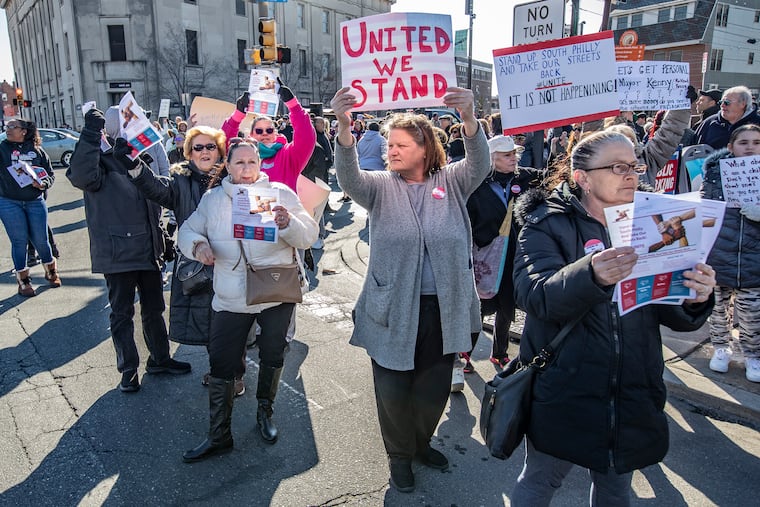Sen. Pat Toomey, Rep. Brian Fitzpatrick to weigh in against Philadelphia supervised injection site
The two GOP lawmakers are throwing the weight of their offices into a court case that could become a national landmark.

Sen. Pat Toomey and Rep. Brian Fitzpatrick, both Pennsylvania Republicans, are throwing their voices into a nationally watched legal fight against a plan to open a supervised injection site in Philadelphia.
The two GOP lawmakers filed an amicus brief Friday supporting the U.S. Justice Department’s effort to shut down the site before it can ever open, adding the weight of their offices to a dispute over what would be the country’s first facility where people could use illegal drugs under medical supervision. The other eight Republicans in the state’s House delegation also joined the brief, as did Sen. Tom Cotton (R., Ark.).
The case, currently pending in the Third Circuit Court of Appeals, is being watched as a potential landmark for similar efforts elsewhere.
The brief, first reported by The Inquirer, argues that supervised injection sites violate federal law.
“Policy decisions involving controlled substances have a critical impact on our nation — and often prompt fierce debate among competing viewpoints. That debate is for the people’s representatives in Congress, not the federal courts, to resolve,” the brief says. Every member of Pennsylvania’s congressional delegation was invited to join, according to Toomey’s office.
Ronda Goldfein, vice president of Safehouse, the nonprofit pushing to open the site, said the issue should not be politicized.
“Our current pandemic tells us that politicizing health issues doesn’t really work out and we should leave public health matters to public health officials and public health scholars,” said Goldfein, who is also director of the AIDS Law Project of Pennsylvania. She added, “There are families throughout the nation who can tell you that overdose is not party-based, and I think we need to look at what folks need, and not hide behind party alignment.”
Safehouse and its supporters argue that allowing people to use drugs under supervision can save lives amid an opioid epidemic that has killed more than 3,000 in Philadelphia alone in the last three years. Such sites have been used for for decades in Canada and Europe.
But critics worry that such sites could concentrate drug use and trigger more drug-related violence, though most studies suggest crime does not increase around the facilities. There have been neighborhood protests against the proposal.
William McSwain, the U.S. Attorney in Philadelphia, has argued that the facility would be illegal and has called it “a radical experiment that would invite thousands of people onto its property for the purpose of injecting illegal drugs.”
U.S. District Court Judge Gerald A. McHugh sided with Safehouse in October, ruling that a 30-year-old law targeting so-called crack houses would not apply to its supervised injection site. The government has appealed that ruling.
Fitzpatrick, of Bucks County, has a law enforcement background — he is a former FBI agent. He also faces a GOP primary challenge June 2.
Toomey has taken aim in the past at Philadelphia policies that he believes are out of step with public safety, frequently criticizing the city’s “sanctuary city” policies regarding undocumented immigrants.
Safehouse’s filings to the Third Circuit are due June 15.
Staff writers Aubrey Whelan and Jeremy Roebuck contributed to this report.